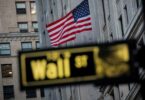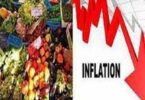HONG KONG (AFP): Equities went into reverse Friday, snapping a week-long rally, as a forecast-topping US inflation report revived fears the Federal Reserve will hike interest rates again before the end of the year.
Markets have enjoyed a fruitful few days since last week’s jobs report suggested the world’s top economy remained resilient but was not too strong to warrant more central bank tightening to tame prices.
The positivity pushed stocks higher as Treasury yields have come down after a succession of Fed officials lined up to suggest there was little need to lift borrowing costs from their two-decade highs.
However, the mood was darkened Thursday by data showing the consumer prices index rose slightly more than expected in September, highlighting the tough work still to do in the battle against inflation. Still, the reading caused a spike in Treasury yields — exacerbated by a weak bond auction — and sent stocks tumbling in New York, though they pared some of those losses by the end of the day.
“Much of the ‘good’ work done in the past week in the form of bull flattening of the US yield curve has been undone by the latest US CPI report, which shows in particular still uncomfortably high core service sector inflation,” said National Australia Bank’s Ray Attrill.
While observers said the reading was unlikely to sway the Fed in its decision-making ahead of its next policy meeting in November, it shook traders out of their comfort zone. Officials are expected to hold on rates next month, though there is much debate on their plans for December. In early Asian trade, Hong Kong and Shanghai were well down, having enjoyed a strong run this week on hopes for more government support for the economy and struggling mainland markets. Tokyo, Singapore, Seoul, Sydney, Taipei and Wellington were also in the red.
Currency traders were keeping a close eye on the yen as the dollar pushed towards 150 after the CPI reading, with Japanese officials warning they were watching for any extreme moves and primed for intervention. Analysts said traders were worried about selling the yen too far in case Tokyo did step in to support the unit. “Close attention is being paid to the 150 level,” Yuta Suzuki, of MUFG Bank, said. “Investors probably don’t want to buy dollar-yen above 150 primarily because of concerns about intervention.”







